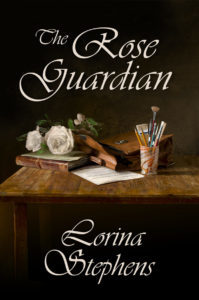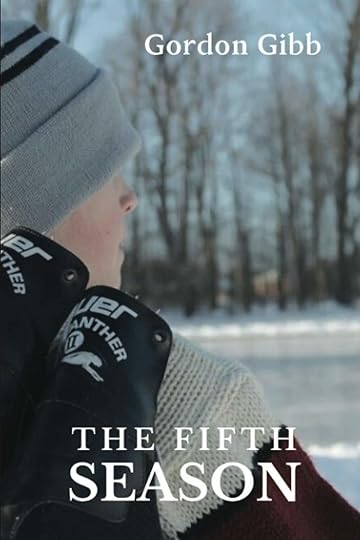Lorina Stephens's Blog, page 12
March 15, 2021
The Grim Reality
So, it’s year end. Financial statements have been run. And once again I look at the numbers and ask myself why I’m doing this. It’s not pretty, friend. Not pretty at all.

I have seven books in publication. Below is exactly how many copies I sold in 2020, whether print, ebook, audiobook or elibrary loan.
And the Angels Sang: 2Caliban: 1From Mountains of Ice: 0Memories, Mother and a Christmas Addiction: 0Shadow Song: 2The Rose Guardian: 1Stonehouse Cooks: 0You didn’t advertise enoughReally? I spent $1073.94 in advertising and promotion in 2020, through Facebook targeted ads, and Kobo promotions. Facebook garnered no follow-on sales. Zip. Nada. The big echoing void. Kobo? Yeah. That’s where it gets really ridiculous. You see the amount of advertising expense above? A large chunk of that was to Kobo. To give away my ebooks. I paid to give away my ebooks. Let that sink in. And here’s how that went:
And the Angels Sang: 49Caliban: 57The Rose Guardian: 78Absolutely no follow-on sales for any of my other titles.
Promotion on Smashwords went pretty much the same. But at least those promotions didn’t cost anything. With Kobo I get to pay to give away my books. Yeah, I know, I already wrote that. It bears repeating.
The books aren’t any goodSure. Yeah. Possibly. But just take a look at the reviews. Pretty good overall. Enough that you couldn’t say the work is garbage, certainly worthy of greater attention, more sales, a bigger buzz among readers.
But the reality is……no one wants to buy your work unless it’s porn or one of the well-known names. Well, certainly readers don’t want to purchase mine. Sure, they’ll download it for free. They’ll pirate it all over the internet and dark web. You can find any number of sites with my work available for free. Pisses me off.
And while it’s true I’ve never expected to make a living from my stories, it’s also true I don’t like being taken advantage of, being taken for granted. Do you have any idea at all how long it takes to craft a good story? Sometimes years. And as a thank you some entitled individual decides the work is okay for free, or even stolen for free. But not worth the pittance of $4.99 for an eBook. Yes, yes, I know I’ve blathered on about this before, about how people spend more on a cup of coffee than they do on an ebook. And that blather has done no good whatsoever. But I still get pissed. And wonder why I even bother to keep crafting stories I can be proud of, sending them out into the world when plainly the world isn’t interested. Compulsion? Some sort of need? Who the hell knows? But apparently I’m working on another novel, putting together another collection of short stories, and developing several more writing projects. I’m insane.
All I’m saying is……if you’re going to be in the arts, do it. But don’t expect fame and fortune. There is no holy grail. There’s only the act of creation. That’s it. And once in a while, if you’re very fortunate, someone will actually hand over cash for your work, or even better tell you to your face they’ve been moved in some way by what you’ve written.
And that’s just the hard truth of it. Or at least my truth. Yours may vary.
February 24, 2021
Interview on The Bookshelf

Gordon Gibb, author, journalist and broadcaster, interviewed me recently for his feature program, The Bookshelf, which airs on Kawartha Oldies. We discussed my latest novel, The Rose Guardian.
He was kind enough to send along an MP3 of the interview. Hope you enjoy it.
https://secureservercdn.net/45.40.144.200/f26.e93.myftpupload.com/wp-content/uploads/2021/02/Lorina-Stevens-Jan-29th-2021-FINAL-EDIT.mp3February 22, 2021
Writers’ Craft 13: Marketing and Promotion
There’s a reason I’ve left the subject of marketing and promotion to one of the last articles on the subject of writers’ craft: it’s a tricky and often highly individual decision, dependent on personal preference, budget, and influence. I don’t think there’s any one perfect strategy. Sure, there are alleged experts who are going to sell you their version of the holy grail of marketing. But I’ve been at this for 40 years, not just in literary arts, but as a business partner in the home renovation industry, and having experience in both the construction and arts, I can assure you marketing is essentially a crap shoot.
So, should you market?Well, yes. Because even though there’s no one perfect strategy for marketing, the flip side of that is no one will buy your widget if they don’t know you have a widget for sale. So, when devising your marketing strategy, it’s important to understand what makes up your market. Who is interested in what you have to sell? What age group? What income bracket? What related interests? What geographic region? All of that goes into the mix.
But what avenue to choose?Certainly today there are myriad choices available. Myself, I opt for what’s going to cost me the least, allow me the greatest exposure to my target market, and take up the least amount of time and effort on my part. Allow me to list some of the tools in my belt:
WebsiteI think this is an essential tool in this age of global telecommunication. The website should be clean, optimized to operate across all platforms (desktop, tablet, mobile), and user friendly. However, having your own website is another whole world to explore and learn, and can be fraught with unexpected frustrations, like when your site gets hacked, or spammers discover you’re a target, and the way to deal with any of that is by dumping another load of cash into apps and services to protect your site. After awhile you start asking yourself, just how economically sound is having a website? Am I actually selling more because I have a website? And with 4 million books published last year worldwide, you start to realize your voice is just one very small blip in the noise of our universe.
And aside from having a blog and putting out blasts of periodic pontification, news and features, are you then going to use your website as a shopping portal? Ecommerce, anyone? And then what kind of secure payment gateway to use?
You see what I mean?
But even so, despite the funds I plough into this website to keep it secure and free of hackers and spammers, little say the lack of sales through the site, I still think it’s an important tool. That’s why I keep it going. Should you? Only you can answer that.
For what it’s worth, I use WordPress, host through GoDaddy, and use PayPal for my payment gateway. I run a theme called Tilt, which I like because of its ability to allow me lots of diversity. I don’t allow unmoderated comments on my blog. I also pay for a security system through GoDaddy. After my initial sticker shock, I was pleased because the hackers and spammers pretty much disappeared. Previous to that I was getting hacked on a regular basis, and spammers were hitting the site on a daily basis.
ReviewsI would say gaining reviews, and reader awareness through reviews, is a good idea, because if nothing else it boosts your signal. So, best and easiest is to offer ARCS (advance review copies) or freebies to people and writers you know of influence from whom you can beg a favour. It also helps if those individuals have some influence in the genre in which you’re writing, which hopefully is an obvious sort of statement. And then take those positive reviews, or at least steal a few positive key phrases, and use them on jacket promotion, interior reviews, on your website, blog, social media, and so and thus.
I have regularly used LibraryThing‘s Early Reviewer program to garner reviews. Helps somewhat. But you do have to bear in mind you often get pretty stupid, ill-considered reviews whether good or bad. Helpful things like: this book sucked; or equally helpful: this book was great. Having said that, there are some very good reviewers on the site, individuals who post their intelligent, considered reviews not only on LibraryThing, but Goodreads (which is owned by Amazon now), Amazon, and other bookseller sites.
If you can manage it, only send out digital copies. Saves you a ton of money.
You can also take advantage of Publisher’s Weekly Canadian indie book galley tracker platform. However, it’s important to remember that in 12 years of operating Five Rivers, I only ever once had one of our books reviewed, and that was Joe Mahoney’s A Time and a Place. Kind of a disappointing return on investment, even if the book received a glowing review. Did that help with sales? Not so much.
Blog tourAnother good step is to see about setting up a blog tour, or at the very least a few guest appearances on other writers’/reviewers’ blogs. There are services which will set this up for you, charging escalating scale, with varying degrees of success. Being a really cheap individual, I baulk at paying for this service, because the few times I did invest cash into a credible service, it resulted in little to no follow on sales or interest. So, again, your mileage will vary. Which is why I choose free whenever possible, because while it’s very important to get the word out there, you also don’t want to lose your shirt paying for promotion. No point selling two books that cost you hundreds, even thousands, in promotion.
Promotional placementPaid promotion/placement through ebook sellers can be another avenue for you. Kobo is the best of these through their Writing Life platform, and usually in the give your book away for free category. You can sell hundreds of books for free (I know, I know, I’m aware how ridiculous that sounds) through these placement campaigns. Do they result in follow on sales? Not so much. But, again, it does get your name out there. And if you’ve been very clever, you’ve placed several pages of advertising in the back of your book, promoting your other works, even having the first chapter to read. It’s a good strategy, Or at least it’s supposed to be. Again, I’ve rarely been able to track follow-on sales.
Amazon offers this sort of thing as well, but only if you sell your soul to them and publish exclusively with them. I know a lot of authors do that. I never have, because it strikes me as not a good idea to give everything to such a huge monopoly, because in the end they own you. There are many indie authors, however, who do this sort of narrow marketing and seem to do well with that strategy.
PPCThen there’s PPC (pay per click) advertising. It’s a lot more expensive, and for it to be effective you have to be willing to set a considerable budget for the lifetime of the campaign you’re going to run, with little to no expectation of return. So, if you have some cash you really don’t need, then go ahead.
The best of the PPC strategies, I feel, is through Facebook, believe it or not. They have the same dynamic, targeted marketing tools as Google, but focused within Facebook’s platform, so you can tailor your demographic quite specifically not only by way of genre, but age, interest, geography. Just be sure to set your parameters to clicking through to a targeted site where they can purchase the book, otherwise you’ll burn through your budget in no time at all. And you can set your daily spend limit as well.
Google is the king of this sort of marketing. I have used Google for our glass business, with some very modest success. But it is very cost prohibitive, so I have only ventured into those waters a few times. Thousands of dollars for Google as compared to hundreds for Facebook.
Podcasts and vidcastsAgain, worth the effort if for no other reason than to get your name and product out there. I’m only just beginning to break into that strategy, having done an interview for MinddogTV, and for Gordon Gibb’s Kawartha Oldies radio podcast. So, researching those is a good idea. Can’t hurt.
AwardsAwards as promotion: basically that’s what they are — a promotional vehicle. There is a perceived aura of gravitas that comes with having been shortlisted, or winning, a literary award. Does that mean your book is going to sell more copies? Most likely not, unless that award happens to be one of the really prestigious awards like the Booker, or GG, or Giller, and even then that can backfire. Five Rivers had quite a number of books shortlisted for various awards, the most prestigious of those being the Stephen Leacock Medal for Humour, and that was for A Town Called Forget, by C.P. Hoff, which was longlisted. There was zero bump in sales, despite promoting the stuffing out of those accolades.
Virtual Launches and readingsAnd of course that brings us to a new and developing strategy: the virtual launch/reading. That seems to be gaining interest, and strikes me as a potentially good strategy to get your name out there for very little cost and effort. Basically the idea is to create a venue through any of the social gathering platforms such as Zoom, GoogleMeet, and such. This is a strategy I am going to explore further in 2021.
Staying organizedI have found setting up a spreadsheet so I can track what promotion for what book of use, as well as keeping track of promotional venues. It can get as complex as a submission spreadsheet.
And that’s about the extent of my playbook. Hope there’s some information there that’s useful.
February 15, 2021
Interview on Kawartha Oldies
 Author and broadcaster Gordon Gibb
Author and broadcaster Gordon GibbGordon Gibb, author of The Fifth Season, and radio broadcaster, features me on his program, Your Kawartha Oldies, on Sunday, February 21, 9:00 a.m. According to Gordon, “there is a short feature, followed by a song or two and the weather forecast for the region, and the Book Corner follows after that…. Just select one of the player apps from the home page.”
Gordon and I talk about my latest novel, The Rose Guardian, and the writing process.

Hope you’ll enjoy the broadcast, check out my novel, and check out Gordon’s.
February 10, 2021
Interview on MinddogTV
I recently had the pleasure of being interviewed by Matt Nappo of MinddogTV about my newest novel, The Rose Guardian.
You can watch the full interview on YouTube, or the audio version here.
January 20, 2021
MinddogTV interview

Tuesday, January 21, 1:00 PM ET, I’ll be a guest at MinddogTV. Matt Napo will be interviewing me about my latest novel, The Rose Guardian.
MinddogTV is a podcast that encourages independent free thinking. They seek to open the doors to provocative subjects and bring fresh ideas and perspectives to light. MinddogTV discusses topics that inspire different points of view. The channel also includes videos from Matt Napo’s music and blog. Based out of the United States, MinddogTV has 3.23K subscribers and can be found on YouTube and Spotify.
Drop in and listen to me live on Tuesday, January 21, 1:00 PM ET, or catch up later on YouTube or Spotify.
The Rose Guardian explores what happens when all that’s left is grief, and the realization of the power of forgiveness. Available in print and ebook through this website, and your favourite online bookseller.
January 6, 2021
Writers’ Craft 12: Agent, publisher or indie?

In the past 20 years the reasonable choices available to a writer have expanded considerably, and the delicacy around some of those choices has diminished. Was a time if you wished to publish your work, you were left with some very stark avenues. You could choose to publish through an established publishing house, and used to be you didn’t require an agent to be read by any of the large publishers, let alone the mid to small publishers. Or you could choose to self-publish through one of the many usurious vanity presses who were willing to take your money and leave you staring at your empty wallet and basement of books.
By the turn of the 21st century, you couldn’t get a chance to be read by many of the mid-level publishers, let alone any of the majors, unless you were agented. And the major publishers had undergone buy-out after buy-out, so that today, with the conclusion of the Penguin Random House purchase of Simon & Schuster, there are now four major publishers where before there were legion. In fact, this latest merger places approximately 33 percent of all new books published through the new entity of Penguin and Simon, according to an article in The Atlantic, with 49 percent of books sold occurring through Amazon. If you think you’re going to stand a chance with any of the divisions under those massive umbrellas, you’re truly a dreamer, or truly a literary genius. Well, perhaps not so much a literary genius as a writer who is well-connected.
Part of that savvy connection has, and can still be, introduction through a well-respected and connected literary agent. But again, agencies, like many publishers, started closing their doors to new clients, and refused to accept unsolicited queries shortly after the closed-door policy of publishers. Kind of reminds me of the old conundrum of: you can’t get a job without experience, and you can’t get experience without a job.
That conundrum often led to the belief networking is the key to obtaining that audience with an agent or publisher, and that networking often meant the author spending considerable time and funds on conventions, and workshops led by known literary entities. Sometimes it works. Most often it doesn’t. And in my opinion, placing hope in this kind of networking is another field of shattered dreams. Do these things if you have the funds, time, and enjoy large social gatherings. But don’t go with any realistic expectation of being discovered. You stand about as much chance of that as the aspiring actor in the golden age of Hollywood hanging out at the 50s malt shop. And many dreamers did, only to end up working at said malt shop to pay for room and board.
But I digress from the point I was making. Back when, as I said, you went through an established publishing house, or you turned to one of the dream merchants who took your money, published your book for you, and left the business of marketing your book to you. The cost was, and still remains, significant, with the author having to warehouse and distribute, which is another whole field of shattered dreams. I tend to talk about that a lot: the field of shattered dreams. I’m truly not being pessimistic; I’m just trying to forewarn you of stark realities.
But what about today’s market?

Since the 1980s, much has changed in the publishing industry with the development of print-on-demand, ebooks, and audiobooks, and those technologies have been very significant catalysts of that change. Publishing platforms and built-in distribution channels started popping up across the global internet landscape since the ’80s, allowing anyone with a dream to bring their books to market. Lulu was one of the first credible print-on-demand platforms back at the dawn of the 21st century, with distribution to all the major chains across the globe.
By the time the calendar ticked over to 2010, Ingram had firmly established it’s own print-on-demand giant, Lightning Source, and self-publishing never looked back. With the power of their massive distribution to both major chains and indie booksellers, a robust user interface, and reasonable cost, self-published books skyrocketed. Their success became noteworthy enough that Amazon launched their own print facility, which was followed by others. And of course ebooks were another engine driving the publishing revolution. Digital book platforms and aggregators sprouted like mushrooms.
As a matter of fact, the publishing industry, fueled by the self-publishing movement, saw over 1.7 million books self-published in 2018 in the United States. By 2019 that figure rose to 4 million. There are further informed and staggering statistics regarding the evolution of publishing over at Berrett-Koehler Publishers’ website. I suggest you slide by there and have a good read.
The number of published books in 2020, during this pandemic when people have had more time to pursue their literary dreams, has increased dramatically. I don’t have the figures to hand at the time of writing this, my apologies. But given more people are writing, and more people are publishing, it’s wise to remember you’re going to be just one more small fry in an ocean of fish. Doesn’t matter what publishing avenue you choose. The reality is you’re stacked up against millions of new books.
Your choices today

You have three choices: agent, publisher or indie. The second choice breaks into three choices: Big4 publisher, mid-level publisher, or small publisher. Good luck with the first, because that will require an agent, and I’ve already discussed that labyrinth above. Your second choice can also face the requirement of an agent. Your third likely won’t require anything other than an excellent manuscript, and an excellent cover letter. But don’t for a moment assume that pitching to a small publisher is going to mean sub-standard professionalism. Having run my own small publishing house for over a decade, I can attest to the fact standards of excellence were always a part of our mandate, and I know that standard is echoed by many of my colleagues.
Your first choice can garner you an advance. Don’t get excited about that, because it’s an advance against royalties, and if you don’t sell sufficient copies after a certain length of time, you may find your book remaindered, and a requirement to pay back the advance, if your agent hasn’t negotiated the elimination of that clause. I know of authors who have had exactly this experience, of having to pay back an advance. It does happen. And even if you do sign with a large publisher, you will still be required to do most of your own marketing. Gone are the days of the book tours and publisher-hosted signings, of massive ad campaigns. That pretty much disappeared before the 21st century, and certainly has now unless your one of the known literary luminaries of the world. Even for them, however, marketing more and more rests upon their own shoulders, not that of the publisher or agent. Don’t believe me? That’s fine. Go do the research.
Your second choice may garner an advance, and certainly will land you in brick and mortar stores. But just as with any publisher which deals with on-the-pavement stores, beware of returns. Booksellers are notorious for beautiful, bountiful displays of books to entice customers onto that retail footprint. Be aware, however, that after 45 days those unsold copies — and there will be unsold copies — will go hurtling back to the publishers’ distributor, and you’ll find your royalty statement reflecting those returns, perhaps into the negative figures. It happens. I remember this from my own experience with a mid-level publisher.
Then you have to add into the mix the new reality of the COVID-19 pandemic. Globally we’re still going to be under varying degrees of lockdown through 2021, depending on the political will of our respective governments. That’s going to mean more online and curbside pickups. No browsing through stacks of books. Shop online. Have it delivered. Or pick it up. And given that businesses will adapt to this new reality, or die, it’s likely those strategies will carry forward into whatever new world we emerge on the other side of controlling this virulent and quickly-morphing virus, let alone convincing the global population to opt into being vaccinated.
In my opinion, developing your career choices and marketing strategy to include bricks and mortar stores is the same as wanting your book to be published in scroll format or wax tablets.
But back to your publishing choices: let’s look at the small publisher. All of the above applies. But there are also a lot of other fluid ingredients in the mix. Many small publishers won’t offer an advance, because it’s just not financially feasible. Many have limited distribution and marketing capabilities, but many will work closely with an author on cooperative campaigns to maximize exposure, developing very tight relationships with their authors. A small publisher is not to be overlooked, just because you have stars affecting your vision.
Or there’s the indie route. That means you’re the author not only of your literary work, but of your entire professional publishing career. I favour this route, I will admit. Why? More control. If I have to face doing my own marketing if I go with any size publisher, then I might as well control the entire chain. And remember, this opinion comes from a woman who ran her own publishing house for over a decade, championing Canadian voices to a global market, and one who has been published through a mid-sized publisher.
If you go indie, it does mean shouldering the cost of development to get your work to market. That can be expensive. You’re going to need to hire a recommended, respected developmental editor, not just a copy editor. That may run you several thousand dollars. Then you’re going to need to invest in publishing software if you’re going to undertake the layout yourself. Sure, there are people who self-publish solely through Amazon’s KDP, and use Word for their layout, allowing Amazon’s engines to do the conversions. But if you want a truly professional layout, you’re either going to purchase publishing platform software (I use Adobe’s InDesign through their Creative Cloud subscription service, and highly recommend it), or you’re going to hire a layout artist who can do that for you. Be sure the individual you hire can also provide you with current ebook format for upload, because if you’re going to publish, do so in print and ebook, and even look at developing your own audiobooks, because that’s a burgeoning market and you will want to have your book available in all formats in order to maximize exposure and sales. Again, I caution you, audiobooks are a truly expensive undertaking whether you’re going to hire someone to do that for you, or undertake it yourself. You can use Amazon’s ACX platform and choose a royalty share contract with a voice artist. But, again, there’s a caveat — where isn’t there in the publishing industry — in that ACX has worked all manner of tricky clauses into their contracts which may leave you stuck with them and their draconian measures for up to seven years. And there’s isn’t thing-one you can do about that. I speak from frustrating experience.
You’re going to also need a good cover artist, unless you have a background in that field as well.
Then you’re going to have to decide what self-publishing portal you’re going to use. I use Lightning Source, which also has another division specifically for individuals rather that publishing houses, known as Ingram Spark. Either are robust, excellent platforms which offer you global distribution and lots of tutorials, as well as competitive pricing. There are many other platforms, the lead among them Amazon’s Kindle Direct Publishing. I don’t use KDP simply because I don’t trust or like Amazon’s underhanded way of doing business, and I figure Jeff Bezos gets enough of my dollars without adding to his billions through publishing my work. I do upload my ebooks to their platform, but I don’t publish print through them.
If you’re thinking to minimize your printing cost by going offset, it’s important to know you’re going to look at a minimum run, anywhere between 500-3000 copies, depending on the printer. While the cost per unit can be cut in half using this method, it also means a huge capital outlay. But that’s not even the beginning of your difficulties, because then you not only have to find somewhere clean, dry and secure to store all those books, but you’re going to have to find a way to bring those books to market. It’s highly unlikely you’ll convince a distributor to take on your work. Why? Remember those statistics about the number of book published every year? Yeah, that’s why. And if you think a simply call to the marketing division of any of the chains is going to open the door, well, best go make your bed in that field of shattered dreams.
I know, I know: Lorina, why are you pissing all over my bliss?
Sorry, mate, just trying to give a helping hand here, truly.
Just be sure you do your homework and thoroughly investigate what you’re getting for your investment. If looking at print, research what the company’s print quality is like. Do they do in-house printing, or contract it out? Many platforms contract out and in fact use Lighting Source. If doing ebook, check distribution channels. Same with audiobook.
Sounds like a lot of research? It is.
But remember this: even if you’re publishing through a publisher, you should know this stuff. Why? Because the better informed you are, the better you can control your own destiny.
Whatever you do, never lose sight of the true meaning of being a writer: to tell a story, to share, to create. That should be the foundation of everything. All else? Well, it’s all else.
January 2, 2021
Writers’ Craft 11: Beta Readers or Not

There seems to be an accepted protocol that once you’ve finished your novel, you then put together a group of willing, knowledgeable readers — beta readers — to do what is essentially a market test.
The reasoning behind this method seems sound: you want to be sure, after all your revisions and polishing, that you’ve crafted this story well, that readers will get what you’ve tried to convey. Retaining beta readers is a form of critique session which often happens in writers’ workshops. But it is important to remember beta reader feedback is simply opinion, albeit ostensibly informed opinion. But it’s still opinion. And art, let us remember, is subjective.
Allow me to elaborate
if you have four beta readers look at your work, you may very well receive four quite different responses. Some readers will find the overall story is quite tight, with certain sections requiring revision. Some may not find the story to their taste, or understanding. In the most severe cases you may receive the opinion you need to go back to the drawing board. In the best of situations, you’ll receive five stars and told to pass go.
Your job, at this point, is to find any common themes in the comments. It’s kind of like reading the Rosetta Stone, deciphering the information you’ve received. And it also requires you read these comments with an open mind while exercising critical thinking, and by critical thinking I refer to Socratic method. And ask yourself, are these readers or writers my peers? Difficult question, requiring a clear and honest understanding of your own, as well as their abilities.
It’s also important you fact-check any comments which may have to do with queries regarding research.
And all of that is a lot of work.
What if you don’t agree?
It’s very possible you may find you don’t agree at all with most or any of the comments you’ve received. If that’s the case, analyze why you have come to that conclusion. If your response to that analysis is centered around people not liking your work, then perhaps what’s happening to your novel is you, your ego. Put that ego in the drawer and go back over the comments. If you find that even after honest, pragmatic analysis you still don’t agree with a beta reader’s comments, then stick to your principles. It’s a fine line between visionary art and art by committee. And only a brutally honest self-evaluation will allow you to navigate that path with any degree of success.
But what if I don’t want to use beta readers?
 Vase with Fifteen Sunflowers Vincent Van Gogh
Vase with Fifteen Sunflowers Vincent Van GoghThen don’t. It’s that simple. As long as you’re being honest with yourself, striving for excellence, and are willing to take yourself to task without succumbing to narcissism, then you’re okay. That’s not to say that your work will go out into the world to wide critical acclaim and reader acceptance. But as long as you’ve been careful and adhered to an honest standard of excellence, then you should be okay.
At this point I do have to say I no longer solicit beta readers. Why? Mostly because I feel confident enough in my work, and the vision I’ve tried to create. Sounds a bit like hubris, which probably it is, but then again I don’t much care. Allow me to illustrate through a true story revolving around a different artist and artistic discipline, but a story which carries commonalities to the literary world.
When Van Gogh was alive, he knew the association of other contemporary luminaries such as Gauguin and Toulouse-Lautrec — all key figures in the growing Impressionist movement. But they and other artists and dealers denigrated Van Gogh’s work, often calling it amateur, beneath consideration. Time, however, has proved Van Gogh was anything but amateur, and very much visionary. In fact, despite the fact he sold only one painting during his lifetime — one out of over 900 works, his work today is lauded as one of the prime, visionary examples of the Impressionist movement. The second highest price ever paid to date for a painting, was for Van Gogh’s Vase with Fifteen Sunflowers, and fetched the equivalent of $1.2B CA, in 1987.
Were Van Gogh’s beta viewers correct? Time has proven not.
But you need to ask yourself, and answer honestly: are you Van Gogh? That answer will determine whether or not you solicit beta readers.
December 29, 2020
Writers’ Craft 10: Revision

You’ve just keyed in the final word, placed punctuation, and the sense of accomplishment that settles over you is profound. You’re done.
Or are you?
At this point it’s all too easy to think there isn’t another thing that needs doing to that piece of writing. You’ve been careful throughout, not only with the mechanics of good writing — punctuation, spelling, grammar — but with plot, literary devices, character development, research. It would be all too easy to pull the trigger and fire it off to an agent or publisher, or the editor of that magazine you’re trying to crack, or hit the upload button through a self-publishing portal.
Don’t.
Time develops perspective

Good writing is like good wine. It needs time. What you really should do at this point is close the document, walk away, go do something else for a week, or four, or a couple of months. Do something completely different. Even write something completely different. But whatever you do, do not pull the trigger on the freshly-finished manuscript. Why? Because, and trust me on this, when you do come back to the piece you’ll come back to it with a fresh perspective. It always astonishes me, in my own work, how much tighter, cleaner, cohesive I can make the story by simply allowing myself time. I get to review all the plot inconsistencies, all the opportunities for development, all the missed conversations or descriptions or research which would have furthered not just the plot, but character, tension, the entire foundation of what I’ve created.
And if I can benefit from the boon of time and perspective, so can you. So walk away.
Create a new document

You don’t have to, but I have found it useful to save my revision as a new document. Not that I’ve ever had to go back to the original draft, but it just strikes me as a good failsafe in case things go awry. And they can. Mr. Murphy, who always likes to exercise his law, may just pull up to your document have tea.
Once that bit of housekeeping is out of the way, then you can set to your revision. What you’re doing at this point is coming at it from a distance, as an editor with a critical eye. Some writers set about their revision through Track Changes in Word (or whatever equivalent tool in your word processing program). Myself, I don’t bother.
Other writers print out a hard copy of the document and make their changes pen to paper. Again, this is something I don’t do personally. But if you find any of these methods works for you, then do it. As I’ve said before: there is no single, correct way of writing. You have to find your own method and your own rhythm.
But what I do know is that a second or even third revision may be called for, because after each pass you should again step away, allow yourself time in which to think about the story. When you are utterly comfortable, when you can’t think of another point or opportunity you’ve missed, then go back over the manuscript once or twice with a spelling and grammar check. I would caution you not to hit the universal change button. I’ve done this a few times, much to my despair, only to discover some horrendous changes which took me days to undo.
Will my manuscript ever be perfect?

Probably not. What in life is? When I was publishing other authors’ work, I can remember agonizing over errors we’d let slip through, even after two, sometimes three different editors, plus the author, would have a look. One of my own novels is out there, and I still grit my teeth because I know there are spelling errors I didn’t catch after nine — yes, nine! — revisions and edits.
But do take encouragement and pride in the fact you’ve done your level best to polish your story to the best of your ability. Sure, you can churn out six novels a year. But do you really want to? Will those six novels be works you can look back upon with pride? If you’re writing just to create pulp, then fine. But if you’re writing because of a different calling, or as a journalist who cares about correct detail, then time and an exacting nature will stand you in good stead.
December 8, 2020
Writers’ Craft 9: Research
I remember interviewing biographer and historian Marian Fowler for The Canadian Author and Bookman, back when the Canadian Authors Association published that wonderful writers’ periodical. She was particular about her research, always digging for accuracy and primary sources, and because of that her work rang with truth, a fact which sometimes garnered her a bit of trouble as was evidenced when she wrote her history on Blenheim. Seems the Duke of Marlborough took umbrage to Marian referencing some of the interesting escapades and traditions established by Consuelo Vanderbilt, who became one of the legendary American heiresses to marry into British aristocracy, and thus the Duchess of Marlborough, and rescue heritage estates. Marian had a love of discovery, of unearthing facts and history around the subjects about which she wrote. I remember her saying she was so very glad not only for her extensive education, but the fact she had a lifetime of immersion into reading, often esoteric reading, and thus a broad knowledge. She said something to the effect of having a head full of interesting trivia. That paradigm stuck with me. And while I’d always had a love of discovery, I realized it was important to encourage and cultivate that love in order to enrich the articles and stories I wrote. The fact it has always been fun for me was an added bonus.

So if you’re going to venture into writing, whether as a journalist or creator of fiction or non-fiction, the love of research is a work-paradigm you need to embrace. Sure, there are lots of writers out there bashing out novel after novel, book after book, spouting pseudo expertise and consumable, forgettable work. In and of itself there’s nothing wrong with that. Escapism is perfectly fine. However, if you want to write a really good book, or a memorable fiction, then you need to gather around you an arsenal of information which will allow you to write with authority. Do that, and your work transcends because it is believable. You have infused your story with plausibility, and it’s that plausibility which will have readers returning to your stories both familiar and new.
How far do you take that research?
As far as I’m concerned, and this is only my perspective on the window of writers’ craft, there is no limit on how far you take your research. Myself, I’m often guilty of doing too much research, because I find myself frozen with uncertainty regarding what is sometimes minutia. But it matters to me, because if that Norseman in my story is spooning down a plate of rutabaga (neeps or swedes), I need to know rutabaga was available in the 2nd century. In fact, I’ve recently learned rutabaga wasn’t available until the 16th century, and is a hybrid cross between turnips and cabbage. So, no, that character in my 2nd century story won’t be macerating a mess of rutabaga. He would, however, chow down on turnip. And, yes, turnip is a different vegetable to rutabaga.
Why does that matter? Well, because there is assuredly some person out there who is going to read my story and come across this passing, one line sentence and nod with approval because they know I have my facts straight, and that, in turn, deposits further proof of plausibility of the story, and credibility of the writer. Which, hopefully in turn, will mean that reader will put me on their list of writers they want to read. So, in a way, good research is good marketing.
As an editor — and you will forgive me for reiterating an oft-stated example — if you’re going to have your character trekking about at night, be aware that unless it’s a brilliantly moonlit night, in open territory, there isn’t a hope in hell that character will be able to see colour, let alone details like, oh, that big mucking ravine in a dense forest they’re about to pitch into. Or, if you have that character going into an inn there isn’t going to be some great massive beastie roasting over the fire in the main room. Inns, in any time period, in any culture, were the masters of fast food. So the fare would range through soups, stews, pottage, pies both savoury and sweet, bread, cheese, cured meat, fish either fresh or salt, and small fowl. And no there isn’t going to be peacock, because in most European cultures that was a royal bird. As was swan. Even venison, rabbit, pheasant, grouse or other game procured by the common folk could have you either mutilated or executed. The royals were mighty particular about what could and couldn’t be taken from their land, and they owned most of the land. So you, as a weary traveller, had to rely upon what was readily available in the common market, legal for trade, and easy to keep, prepare and serve. Unless, of course, this is some sort of underground inn serving the illegal and perhaps even dangerous. That’s another whole interesting story.
And you also need to be aware of what was available in season. So, you won’t be having fresh asparagus served with roasted potatoes, because the former is a spring vegetable, and the latter an autumnal. Unless you’re dealing with a culture which has access to food preservation in the modern or future world. But those methods of preservation have to be plausible and credible.
If you’re looking for some excellent visual examples of, say, British Regency, there are some superb British films in which the details are perfect and delightful. Comes to mind one of my personal favourites, an adaptation of Jane Austen’s Persuasion done in 1995, staring Amanda Root and Ciarán Hinds. From the salt stains on the naval uniforms, to the mustard seed crust on a baked ham, the correct shoulder seam treatments in garments, to furnishings in homes from peasant through gentry, it is an intimately researched film which remains utterly true to the time period and the author’s vision.
These details matter. Always.
But what kind of research?
Primary source is always your first, best reference. What do I mean by that? From the horse’s mouth, as it were. If you can find it, an extant text from the period, and it doesn’t matter whether that text is a print book in your hand, or available digitally through a well-annotated Wikipedia entry or website. Secondary sources are fine, but you want to reference the bibliography to see if the writer(s) used primarily primary sources for their research.
For example, in my current novel in progress, I’ve been fortunate enough to be able to access, and be in correspondence with, archeologists who are curating and researching the sites about which I’m writing. So, wow. I’m in historical writers’ nirvana.
If you’re writing science fiction, then you want to be sure you have solid research regarding whatever subject you’re discussing, whether that’s space travel, an alien invasion, or alien world. It has to be plausible. And it’s plausible because you have the research right.

To refer again to film, one of the most startling and plausible science fiction series I’ve had the pleasure to view was The Expanse. Not only was it great writing and world-building, but it was utterly plausible because the research and science were so tight. Sure, the series isn’t going to be everyone’s bliss, but the fact they made space travel difficult, that they made living in space have physical consequences, that the political intrigue had the ring of humanity’s truth, all went toward giving the series absolute credibility. This is no Star Trek, “Give me warp nine,” let’s sit in comfy theatre chairs science fantasy. This is good science fiction, because the science is real and credible.
Do my homework?
So, yes, do your homework. Get to know the world about which you’re writing, not just the characters. Make that world come alive, and you infuse life into that work because you understand all the minutia of that world and how it functions. Cultivate an encyclopedic mind and let that spill out into your story. It is my belief it will make a better story. And the adventure you have along the way may turn out to be something completely engaging and rewarding, because, after all, what is art but an expression of self and vision?




